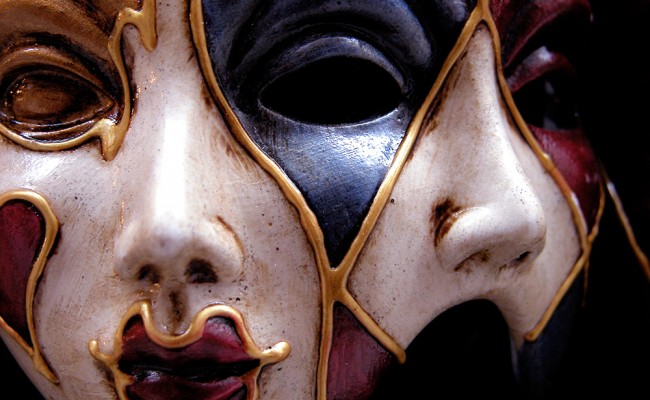When my gaysian brothers seethe at profiles on dating or hook-up apps that state ‘no Asians’, or the glibly cutting ‘no rice no curry’, I sympathise with their hurt and anger. I know that seeing these statements over and over again will make even the most confident men doubt not only their sexual desirability but the possibility of finding camaraderie in the gay community. I understand that this rejection is especially potent because it echoes exclusion and discrimination on a racial basis in school, work, media representations and public life.
At the same time, I can’t help but think, just because he fucks you, doesn’t mean he respects you. As a woman I’m always keenly aware that being an object of desire doesn’t translate into a recognition of my subjectivity. And I’ve run into enough stereotypes about Asian women to know that people can be attracted to me for racist reasons, just as they might reject me for racist reasons.
Jeremy Helligar’s recent HuffPo article ‘Sorry, I Don’t Do Asians’: The Dangers of Racial Discrimination in Dating’ has brought conversations about racial prejudice and sexual attraction back into the public eye. Though I and others have been discussing the topic for years, each new mention seems to spark fresh and fiery debate because the topic touches such emotive terrain.
It’s uncomfortable to politicise attraction. We may acknowledge that our culture promotes a particular hierarchy of desirability, with young, thin, white, non-disabled and appropriately masculine or feminine people at the top. We may accept that ‘the personal is political’. But it can still be difficult to consider something so intimate as desire in relation to social structures of power and privilege. People get defensive: attraction is both immensely powerful, and somewhat mysterious. How can we be responsible for what we can’t control?
Discussion of racially prejudiced attraction typically conjures up two analogies, and Helligar’s article makes reference to both. The first makes the argument that if it’s unacceptable to discriminate on the basis of race in education, employment and other areas, it should be unacceptable in sex and dating. As Helligar says, ‘‘racist’ is the operative word to describe someone who would exclude someone from housing, from jobs, from sex, from love, based on ethnicity.’ In rebuttal, the second analogy hold that if it’s acceptable to exclude a particular gender from your field of desire, it should also be acceptable to do so with racial groups.
Both these analogies are misguided. Attraction doesn’t work like education or employment, and most of us wouldn’t want to approach it as a logical process with set criteria. And being uninterested in women isn’t equivalent to being uninterested in Asians, because the former isn’t experienced as prejudice. There are many things in this world that oppress women but the existence of straight women and gay men isn’t generally considered one of them. It’s a lazy analogy, drawing on a hypothetical similarity while ignoring divergent realities and responses.
We need to talk about attraction on its own terms. That involves an awareness that attraction is neither a wholly conscious and deliberate practice, nor a mystic phenomenon innocent of its social context. It’s one thing to address prejudices stated like door policies, whether it’s ‘no rice no curry’ or ‘no fats no fems’. It’s another to unpack implicit bias from something that consists of implications and insinuations, slants and curves. A speeding of pulse. A flush of heat.
Words like ‘acceptable’, ‘valid’ and ‘legitimate’ mask what we really mean: preferences that may be at once hurtful prejudices, involuntary responses, and products of social hierarchies. For me, it’s important to consider how our desires are culturally informed, how our desires can replicate systems of power and privilege. I put too much of my body behind desire to leave it unexamined. And the most delightful things come when I’m open to surprise.
That said, I don’t know if I can alter my tastes through intellectual rigour. Few people are totally indiscriminate and totally versatile. More are along the lines of ‘I don’t have a type but I know what I like’. Personally, my sexuality has been fluid in many respects and inflexible in others. I enjoy reflecting on it (I mean, who isn’t keen to figure out who they’re drawn to and why) but there are elements that remain unfathomable.
But really, it’s not about me, and it’s not even about you. Changing individual preferences is secondary to challenging the culture around sex, desire and desirability. There’s a difference between knowing you’ve never been attracted to an Asian as yet, and plastering ‘no Asians’ on your dating profile. The latter tells a story about yourself, and your scene. It tells everyone reading that they are in a place where stating ‘no Asians’ can be part of the way you present yourself to attract lovers. Exclusivity can be part of your sell, like one of those hotels in Asia that won’t admit local guests. ‘No Asians’ is a feature. ‘No swimming pool’ is not. To have discriminating tastes is a mark of class, a compliment in some circles.
Culture isn’t just made up of individual preferences. In fact, the number of stories I’ve heard from trans women and fat women whose lovers relished them in secret and spurned them in public suggests that often we’re not talking about an absence of attraction, but attraction that is repressed or deterred because of social stigma. We need to explicitly address the stereotypes and shame that build up a hierarchy of desirability.
In magazines, movies and songs, our society holds up a narrow ideal of beauty. It compels us towards some relationships and punishes us for others. It does not know what will set your heart on fire. If we can collectively escape from these received images, we might make more space for getting to know our own desires. As Olivia Pope would say, eyes flaring, What do you want?






